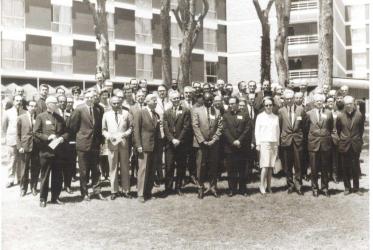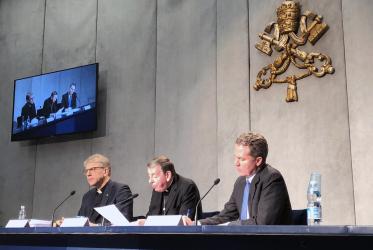Displaying 1 - 20 of 34
23 October 2023
Romani people seek “lives of decency, dignity, and justice”
27 September 2018
Forum strengthens ecumenical commitment to diakonia
12 October 2017
In Lebanon, refugees face hardship - but find hope
16 March 2017
Hielke Wolters: Apostle of mission strategies
01 August 2016
Panel discussion fields ideas on European identity
26 April 2016
Refugees in transit: pushing boundaries all around
08 February 2016














